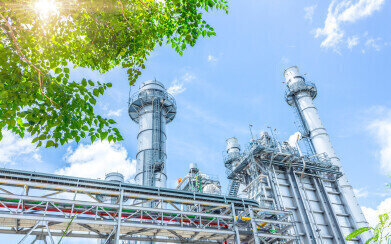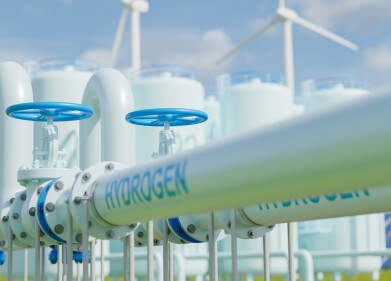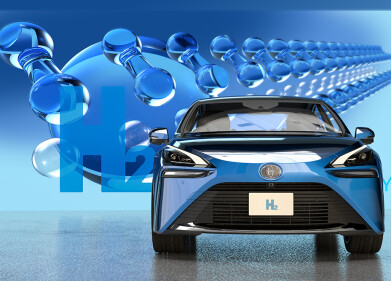Hydrogen fuel
How plausible is hydrogen power for the UK?
Mar 04 2024
Hydrogen power, characterized by its versatility and potential for sustainability, stands at the forefront of the UK's energy transition. With applications ranging from electricity generation in fuel cells to heating and powering vehicles, the plausibility of hydrogen as a key energy vector is under intense scrutiny.
Fuel cells, which convert hydrogen directly into electricity, water, and heat, offer a promising alternative to conventional batteries. With the potential to outperform liquid electrolyte batteries and compete with emerging solid-state batteries, fuel cells could revolutionize electric vehicles (EVs) and beyond. Honda's endorsement of fuel cells over batteries underscores the technology's viability in the automotive sector.
The UK government's ambitious target to achieve 10GW of hydrogen capacity by 2030, encompassing both existing commitments and future projects, highlights the nation's commitment to hydrogen energy. However, the British Geological Survey's report reveals a critical bottleneck: the requirement for substantial amounts of platinum and iridium, essential for fuel cell technology. The UK's reliance on imports, particularly from South Africa, for these materials underscores the challenges of resource dependency.
The production method of hydrogen significantly influences its carbon footprint, presenting a dichotomy between green hydrogen (produced via electrolysis powered by renewable sources) and grey hydrogen (derived from steam methane reforming with natural gas). The British Energy Security Strategy's goal to balance the production of green and grey hydrogen reflects an effort to mitigate environmental impacts while scaling up hydrogen infrastructure. With 14GW of the projected 20GW capacity expected to come from electrolytic hydrogen, the path towards a predominantly green hydrogen economy appears feasible.
Integrating hydrogen into the gas grid could revolutionize heating in the UK, offering a cleaner alternative to natural gas. The potential for next-generation EVs to incorporate hydrogen fuel cells further illustrates the cross-sectoral benefits of hydrogen infrastructure. Despite hydrogen's higher flammability compared to natural gas, its rapid dispersion reduces the risk of accumulation and explosion, making it a safer alternative in well-ventilated areas. However, the increased flammability and explosive potential of hydrogen at lower concentrations relative to natural gas necessitate stricter safety measures and tighter sealing in infrastructure and appliances.
The feasibility of hydrogen power in the UK is high, particularly in the realm of electricity generation through fuel cells. The potential for hydrogen to serve as a versatile energy carrier, capable of transforming the transportation, heating, and industrial sectors, is significant. Nevertheless, achieving this vision requires overcoming substantial challenges, including material dependencies, safety considerations, and the need for a sustainable hydrogen production strategy. As the UK advances towards its 2030 targets, the strategic development of hydrogen infrastructure, alongside investments in technology and safety, will be paramount in realizing the full potential of hydrogen as a cornerstone of the country's energy transition.
Digital Edition
PIN 25.6 Buyers' Guide
January 2025
Buyers' Guide Directory - Product Listings by Category - Suppliers Listings (A-Z) Articles Analytical Instrumentation - ASTM D7042: The Quantum Leap in Viscosity Testing Technology -...
View all digital editions
Events
SPE Hydraulic Fracturing Technology Conference and Exhibition
Feb 04 2025 The Woodlands, TX, USA
Feb 05 2025 Guangzhou, China
Trinidad and Tobago Energy Conference 2025
Feb 10 2025 Point Lisas, Trinidad
Feb 11 2025 Lagos, Nigeria
Feb 13 2025 Manama, Bahrain



















